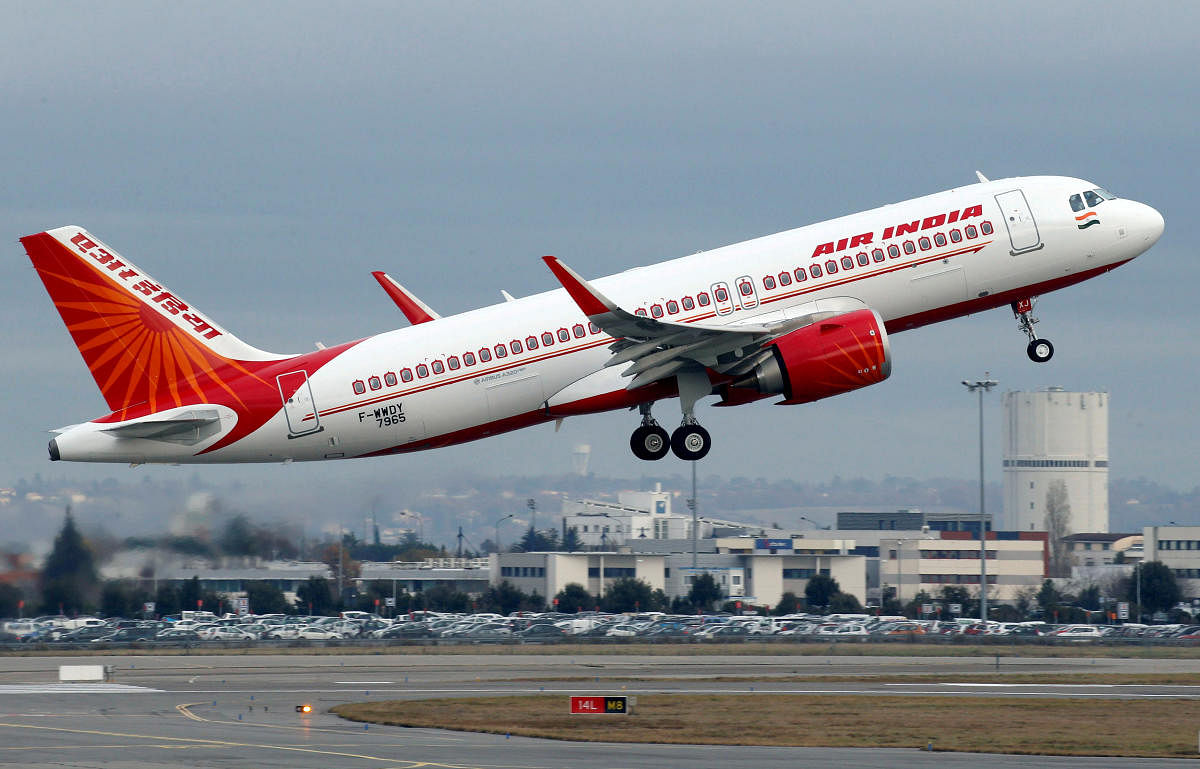
Nudged by Beijing, India on Thursday almost re-asserted its adherence to One-China policy, with the ministry of external affairs endorsing Air India's decision to change “Taiwan” with “Chinese Taipei” in the list of destinations on its website.
Taiwan strongly reacted, stating that the move by Air India could be seen as a “gesture” by India “of succumbing to the unreasonable and absurd pressure from China”.
Though New Delhi refrained from reaffirming its commitment to One-China policy for almost eight years, the MEA on Thursday said that the change on the website of Air India was consistent with the position India maintained on Taiwan since 1949.
“What they (Air India) have done is entirely consistent to international norms,” Raveesh Kumar, spokesperson of the MEA, said on Thursday while responding to a question on the national carrier's decision to change the name of “Taiwan” to “Chinese Taipei” on its website.
“It is also in line with our consistent position on Taiwan since 1949,” he said, stopping just short of reaffirming One-China policy of India.
Air India earlier stated that it went by the advice of the MEA while making the change on its website.
The Civil Aviation Administration of China on April 25 asked 34 international airlines, including Air India, to describe Taiwan as part of China on their websites.
China's state-owned newspaper Global Times recently published an article pointing out that Air India's reference to Taiwan as a country on its website went against the official stance of India.
Air India's decision to change the name on its website came amid efforts by New Delhi and Beijing to mend bilateral ties, which had hit a new low last year over the 72-day-long military face-off between Indian Army and Chinese People's Liberation Army at Doklam Plateau in western Bhutan.
Prime Minister Narendra Modi and Chinese President Xi Jinping agreed upon a roadmap to bring ties back on track when they had an “informal summit” at Wuhan in central China in April and a bilateral meeting on the sideline of the Shanghai Cooperation Organisation's summit at Qingdao in eastern China in June.
The One-China policy recognises only the People's Republic of China, which came into existence in 1949 after the communists defeated the nationalists in the civil war of China. It does not recognise the existence of Taiwan (or the Republic of China), where the nationalists retreated to and based the seat of their government after losing to the communists.
India, like most of the other nations, has been adhering to One-China policy since 1949, recognising only the People's Republic of China. India does not have formal diplomatic relations with Taiwan.
India-Taipei Association, which is headed by a diplomat, functions as a de facto mission of India in Taipei. Taipei Economic and Cultural Centre (TECC) in New Delhi is the de facto diplomatic and consular mission of Taiwan in India.
The TECC on Thursday lodged a formal protest with the MEA. “It (Taiwan) is afraid that if such politically motivated bully actions (by China) are let prevail, people’s freedom in doing business and in their expression of opinion may be undermined. Therefore, free and democratic nations should work together to protect their common values and interests,” Chung Kwang Tien, Taiwan's envoy to India, said.
New Delhi once used to reaffirm its One-China policy in all its joint statements with Beijing but stopped doing so since 2010 — in response to the communist country's policy of issuing “stapled visas to the residents of Jammu and Kashmir, instead of normal visas pasted on passports issued by Government of India.
Beijing's policy of issuing “stapled visas” to J&K residents was seen as a ploy to question New Delhi's claim over the state as “an integral part of India”. It was also perceived as a subtle move by China to support its all-weather friend Pakistan's claim over Kashmir.
The first India-China joint statement without a reference to New Delhi's adherence to One-China policy was issued when the then Prime Minister Manmohan Singh hosted the then Chinese Premier Wen Jiabao in New Delhi in December 2010.
The reference to India's One-China policy did not return to the joint statements issued by the two nations even after the regime changed in New Delhi and Singh was succeeded by Narendra Modi as the prime minister in May 2014.
During her first meeting with Chinese Foreign Minister Wang Yi in New Delhi in June 2014, External Affairs Minister Sushma Swaraj made it clear that China should adhere to One-India policy and stop supporting Pakistan on the issue of Kashmir if it wanted India to stick to its One-China policy.
By then, Beijing drew up a plan to build an economic corridor linking Kashgar in Xinxiang Province in north-western China and a deep sea port at Gwadar in Balochistan in south-western Pakistan. New Delhi was concerned, as the economic corridor was proposed to pass through areas in Jammu and Kashmir that India accused Pakistan of illegally occupying.
Beijing is still continuing to invest in China-Pakistan Economic Corridor, yet another move New Delhi perceives as an infringement on the sovereignty of India.